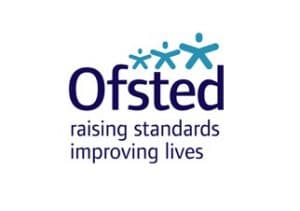Wandsworth Council has demonstrated sustained drive and enthusiasm to ensure that services develop and that outcomes for children improve, Ofsted has stated.
Senior leaders have made purposeful and well-targeted progress in strengthening arrangements at the ‘front door’, as well as in early help services. Pathways for referrals and early help have been more clearly defined and children now receive a swifter response to their needs. Decision-making for children is becoming increasingly timely and consistent.
However, there are several areas identified during this and previous monitoring visits that continue to need further improvement in order to achieve consistently better practice across the service, the inspectorate added.
“Since the last monitoring visit, senior leaders have significantly strengthened the early help offer. Pathways for families to access the broad range of early help services are now clearly defined and well understood across the borough. The local authority has invested in preventative services and, coupled with streamlining decision-making processes on contacts, this has ensured that children receive a swifter response to their needs,” said the report.
Inspectors highlighted:
Social workers and managers in the Initial Point Of Contact team make timely and proportionate decisions to progress work according to the presenting risks, including appropriate referrals into the early help pathway team when the threshold for statutory services is not met.
Decisions to undertake assessments are made quickly, and the manager’s record of decisions includes clear actions and timescales for the social worker in the referral and assessment team to complete. This is leading to a more consistent application of thresholds across the partnership, resulting in families receiving appropriate and more timely help and support.
Effective early support to families is beginning to reduce the need for a number of children to receive statutory interventions.
The timeliness of assessments has improved from a low base, but senior leaders recognise that further improvement is required to meet the target that they have set.
Supervision of staff is regular in most cases and is becoming increasingly reflective. Recording of supervision in the IPOC/MASH team is strong and results in clearly defined action plans for social workers to follow.
However, case recording is not always up to date or sufficiently comprehensive and the views and day-to-day experiences of children are not well reflected at the assessment and planning stages.
The local authority has continued to invest in staffing yet there continues to be too many changes of social workers for children and this has resulted in plans for children not being progressed at sufficient speed.
Audit activity is now well embedded and lessons learned are disseminated to staff although audit activity is too focused on compliance and not sufficiently focused on the experiences of children.
“Senior leaders have an accurate overview of key strengths and weaknesses across the service, and these are well understood and appropriately targeted. Outcomes for children are improving and children are beginning to benefit from social workers who have increasing capacity, knowledge and skills,” said the report.
“There are wide-ranging training opportunities and staff are committed to improving their practice and incorporating lessons learned from audit activity, management feedback and practice days into their day-to-day practice. The key challenge for senior leaders is to further embed consistency of good practice across the service and to ensure that weaknesses in supervision, case recording and the quality of assessments and plans are addressed swiftly,” the report concluded.



